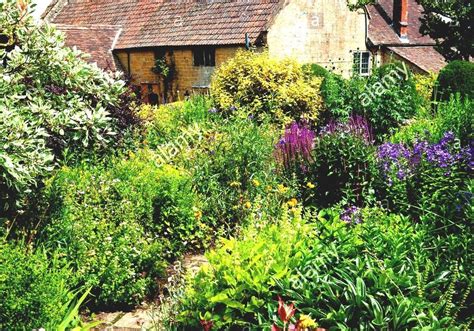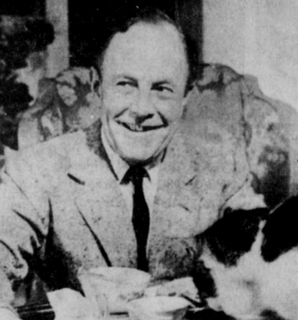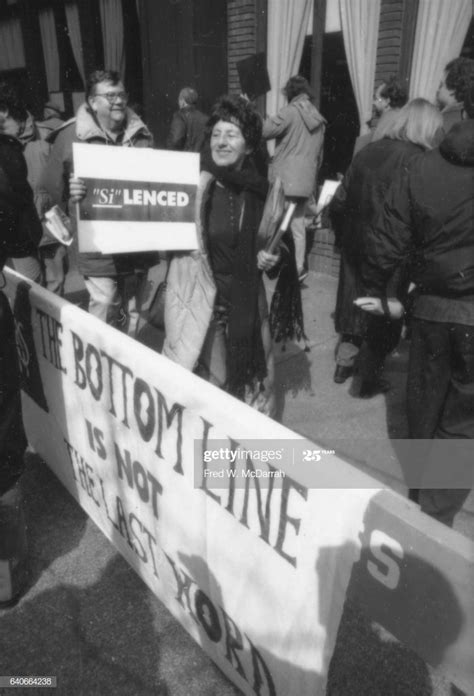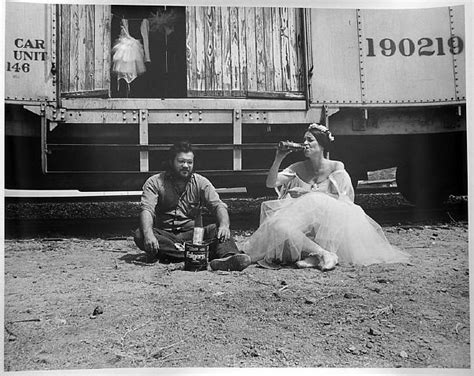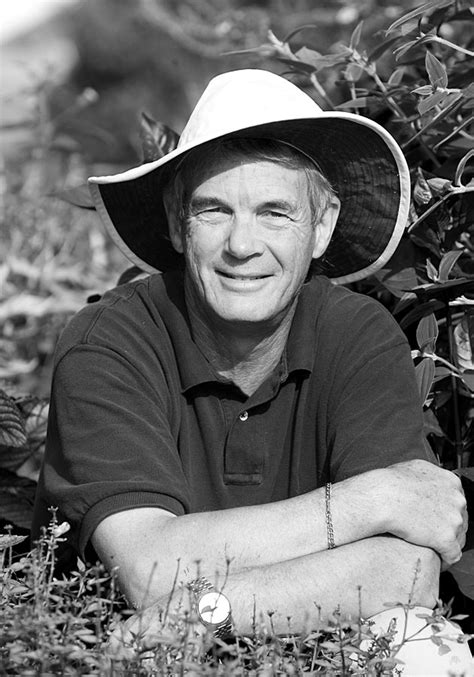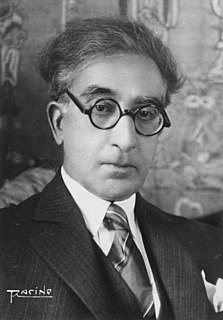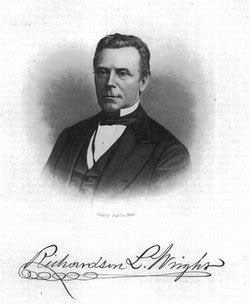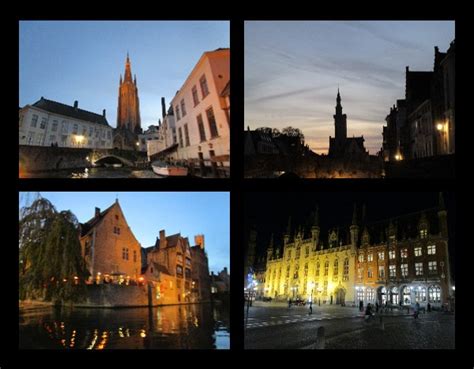Top 475 Gardens Quotes & Sayings - Page 8
Explore popular Gardens quotes.
Last updated on December 18, 2024.
The Bible is the story of two gardens: Eden and Gethsemane. In the first, Adam took a fall. In the second, Jesus took a stand. In the first, God sought Adam. In the second, Jesus sought God. In Eden, Adam hid from God. In Gethsemane, Jesus emerged from the tomb. In Eden, Satan led Adam to a tree that led to his death. From Gethsemane, Jesus went to a tree that led to our life.
For more than thirty years, Joe Eck and Wayne Winterrowd have been gardening with extraordinary, indeed legendary, results. Part memoir, part omnium-gatherum of horticultural wisdom and practical advice, Our Life in Gardens is at once literate, learned, sensible, and, often, sheer luscious poetry. There are delights to be sampled on every page. From a cultivated life, they have brought forth, once again, a cultivated book.
Why are you smiling?' Gargarin asked Froi, from across the balconette. 'When you're going to have to learn a lesson in diplomacy today and choose between the gardens of two women?' Froi laughed, his chin resting on Quintana's head, his eyes taking in the joy of his son, despite the ridiculous cap that covered the babe's head. He looked across at Lirah and Arjuro and Rafuel, and then back to Gargarin who was smiling himself, because he knew the answer to his own question. 'Because today, I think I'm leaning on the side of wonder.
You have two gardens: your own garden and that of your beloved. First, you have to take care of your own garden and master the art of gardening. In each one of us there are flowers and there is also garbage. The garbage is the anger, fear, discrimination, and jealousy within us. If you water the garbage, you will strengthen the negative seeds. If you water the flowers of compassion, understanding, and love, you will strengthen the positive seeds. What you grow is up to you.
Waking up is unpleasant, you know. You are nice and comfortable in bed. It is irritating to be woken up. That's the reason the wise guru will not attempt to wake people up. I hope I'm going to be wise here and make no attempt whatsoever to wake you up if you are asleep. It is really none of my business, even though I say to you at times, "Wake up!" My business is to do my thing, to dance my dance. If you profit from it fine; if you don't, too bad! As the Arabs say, "The nature of rain is the same, but it makes thorns grow in the marshes and flowers in the gardens."
It has taken biologists some 230 years to identify and describe three quarters of a million insects; if there are indeed at least thirty million, as Erwin (Terry Erwin, the Smithsonian Institute) estimates, then, working as they have in the past, insect taxonomists have ten thousand years of employment ahead of them. Ghilean Prance, director of the Botanical Gardens in Kew, estimates that a complete list of plants in the Americas would occupy taxonomists for four centuries, again working at historical rates.
Las Vegas suggests that the thirst for places, for cities and gardens and wilderness, is unslaked, that people will still seek out the experience of wandering about in the open air to examine the architecture, the spectacles, and the stuff for sale, will still hanker after surprises and strangers. That the city as a whole is one of the most pedestrian-unfriendly places in the world suggests something of the problems to be faced, but that its attraction is a pedestrian oasis suggests the possibility of recovering the spaces in which walking is viable.
You, Beloved, who are all the gardens I have ever gazed at, longing. An open window in a country house - , and you almost stepped out, pensive, to meet me. Streets that I chanced upon, - you had just walked down them and vanished. And sometimes, in a shop, the mirrors were still dizzy with your presence and, startled, gave back my too-sudden image. Who knows? Perhaps the same bird echoed through both of us yesterday, separate, in the evening.
Needle was Robb and Bran and Rickon, her mother and her father, even Sansa. Needle was Winterfell's grey walls, and the laughter of its people. Needle was the summer snows, Old Nan's stories, the heart tree with its red leaves and scary face, the warm earthy smell of the glass gardens, the sound of the north wind rattling the shutters of her room. Needle was Jon Snow's smile. He used to mess my hair and call me "little sister," she remembered, and suddenly there were tears in her eyes.
We all grew up in communities with grandmothers who cooked two, three vegetables that you had to eat. There was no ifs, ands or buts about it. But that's because many of our grandparents, they had community gardens; there was the vegetable man that came around. There were many other resources that allowed them to have access. So it's not that people don't know or don't want to do the right thing; they just have to have access to the foods that they know will make their families healthier.
One of the most delightful things about gardening is the freemasonry it gives with other gardeners, and the interest and pleasure all gardeners get by visiting other people's gardens. We all have a lot to learn and in every new garden there is a chance of finding inspiration - new flowers, different arrangement or fresh treatment for old subjects. Even if it is a garden you know by heart there are twelve months in the year and every month means a different garden, and the discovery of things unexpected all the rest of the year.
Stupid women, and all are stupid, think the first winning of the man the final victory. Then they settle down and grow fat, and stale, and dead, and heartbroken. Alas, they are so stupid. But you, little infant-woman with your first victory, you must make your love-life an unending chain of victories. Each day you must win your man again. And when you have won the last victory, when you can find no more to win, then ends love. Finis is written, and your man wanders in strange gardens.
All writing is by the grace of God. People do not deserve to have good writing, they are so pleased with bad. In these sentences that you show me, I can find no beauty, for I see death in every clause and every word. There is a fossil or a mummy character which pervades this book. The best sepulchers, the vastest catacombs, Thebes and Cairo, Pyramids, are sepulchers to me. I like gardens and nurseries. Give me initiative, spermatic, prophesying, man-making words.
I am extremely proud of our remarkable men and women who serve in our military, but the reality is that this is a shrinking percentage of the American population. Unfortunately, this has resulted in a growing disconnect between our military and civilian population. At one time, we had participation from nearly every American. Victory gardens, metal collections, saving stamps and bonds-everyone did their part to support our military. We simply don't do that anymore.
There are over a million types of fish in the sea as there are flowers in all of the world's gardens. There are at least a million different types of rocks/minerals as there are species of birds or monkeys. To believe we are the only "intelligent beings" on this earth and beyond is ignorance. The possible configurations of lifeforms that could be created from a single atom are infinite. There are at least a billion people on this earth, and no two faces look the same. It is very arrogant to assume that we have seen all of God's miracles.
I grew up in Memphis, Tennessee; I went to college in New Orleans before moving to New York City for graduate school. Both sets of my grandparents grew up in rural Mississippi and brought a lot of agrarian knowledge to Memphis, which is an urban center in the South. Both sets had amazing backyard gardens. My paternal grandfather, practically every inch of available space was green.
I have always gone to nature, since I was a kid. I was brought up in the woods, I did not have lots of friends, so I spent lot of time alone. My mother always loved to live in the forest; she loved gardens, birds and nature and taught me a deep respect for that. She taught me about growing food and vegetables and to take care of animals. They also have feelings. So nature was always something sacred for me, the place I can go, meditate and pray. It's like a church in the nature for me.
This is a valley of ashes--a fantastic farm where ashes grow like wheat into ridges and hills and grotesque gardens; where ashes take the forms of houses and chimneys and rising smoke and, finally, with a transcendent effort, of men who move dimly and already crumbling through the powdery air. Occasionally a line of gray cars crawls along an invisible track, gives out a ghastly creak, and comes to rest, and immediately the ash-gray men swarm up with leaden spades and stir up an impenetrable cloud, which screens their obscure operations from your sight.
In the closed world of the gynaeceum, despite the gardens and parkland extending beyong the horizon, despite the insurmountable walls separating pavillions and palaces, the tangled web of our fate was inescapable. Why did these women love each other to the point of madness? Why did they loathe one another so vehemently, and why did sworn enemies feel such horror and fascination for one another? Why should furious hate become obsession, then intoxication and the very reason to live?Because love and hate were the two heads of the demon.
The wilderness is near as well as dear to every man. Even the oldest villages are indebted to the border of wild wood which surrounds them, more than to the gardens of men. There is something indescribably inspiriting and beautiful in the aspect of the forest skirting and occasionally jutting into the midst of new towns, which, like the sand-heaps of fresh fox-burrows, have sprung up in their midst. The very uprightness of the pines and maples asserts the ancient rectitude and vigor of nature. Our lives need the relief of such a background, where the pine flourishes and the jay still screams.
We spent the first night of our honeymoon in a country hotel, with Tudor architecture oak beams, and floors which sloped, of the Queen-Elizabeth-Slept-Here variety. There were old tennis-courts - the Tudor kind where Henry VIII was said to have played; and gardens filled with winter heather, jasmine and yellow chrysanthemums. [...] So that first night together was spent in the ancient bedroom with the tiny leaded paned windows, through which shafts of moonlight touched the room with a dreamlike radiance [...]
All communities, and low-income communities especially because of food insecurity and lack of access to healthy foods, need more farmers markets, need more community gardens and urban farms. It would be great if people living in communities had the tools and resources to grow food in their own backyard - community-based food systems.
Most people, early in November, take last looks at their gardens, are are then prepared to ignore them until the spring. I am quite sure that a garden doesn't like to be ignored like this. It doesn't like to be covered in dust sheets, as though it were an old room which you had shut up during the winter. Especially since a garden knows how gay and delightful it can be, even in the very frozen heart of the winter, if you only give it a chance.
There's also a growing trend toward having gardens in schools to literally show kids where food comes from by having them grow and prepare their own food. There's also a movement that's bringing farmers into schools and creating relationships between local farms and local cafeterias, so that instead of frozen mystery meat, you have fresh produce that's coming from the area that has a name and a face associated with it.
It's promising and seductive, that huge Italian family, sitting around the dinner table, surrounded by olive trees. But it's not my family and I am not their family, and no amount of birthing sons, and cooking dinner and raking leaves or planting the gardens or paying for the plane tickets is going to change that. If I don't come back in eleven months, I will not be missed, and no one will write me or call me to acknowledge my absence. Which is not an accusation, just a small truth about clan and bloodline.
Th-there," she sobbed. "it dragged him to the Italian gardens. He managed to elude its maw at first, but it harried him through the paths. No matter how much I screamed, it would not put him d-down!" She burst into a fresh wave of tears. "You screamed," will said. "Is that all you did?" "I screamed a great deal,." Tatiana sounded injured. She drew fully away from Will and fixed him with a green gaze. "I see you are as ungenerous as you ever were.
I hear in the big city, girls dress up like sexy witches and sexy vampires and sexy Easter bunnies, and go to parties where they do all sorts of scandalous things," Kami said. "Luckily you and me, we got to walk around our town looking at our neighbours' gardens and remarking 'My, that's a good-looking scarecrow' to each other. I guess this is why our natures are so beautiful and unspoilt.
Raymond Hendler exhibited a group of abstract paintings that displayed rare high spirits. Using a great deal of fresh white, Hendler devised extremely simple symbols which he dispersed felicitously on his shining grounds. These bright, often linear hieroglyphs serve both as pictorial animators-they often flow in winding patterns or like fluent handwriting-and as references to the plentitude of the artist's existence. Gardens and sky and human joy are read in these exceedingly compressed forms.
The pleasure of eating should be an extensive pleasure, not that of the mere gourmet. People who know the garden in which their vegetables have grown and know that the garden is healthy will remember the beauty of the growing plants, perhaps in the dewy first light of morning when gardens are at their best. Such a memory involves itself with the food and is one of the pleasures of eating. (pg. 326, The Pleasures of Eating)
The Garden En robe de parade. - Samain Like a skein of loose silk blown against a wall She walks by the railing of a path in Kensington Gardens, And she is dying piece-meal of a sort of emotional anaemia. And round about there is a rabble Of the filthy, sturdy, unkillable infants of the very poor. They shall inherit the earth. In her is the end of breeding. Her boredom is exquisite and excessive. She would like some one to speak to her, And is almost afraid that I will commit that indiscretion.
It is the omnipresent rush of water which give the Este Gardens their peculiar character. From the Anio, drawn up the hillside at incalculable cost and labour, a thousand rills gush downward, terrace by terrace, channeling the stone rails of the balusters, leaping from step to step, dripping into mossy conches, flashing in spray from the horns of sea-gods and the jaws of mythical monsters, or forcing themselves in irrepressible overflow down the ivy-matted banks.
In the vast archipelago of the east, where Borneo and Java and Sumatra lie, and the Molucca Islands, and the Philippines, the sea is often fanned only by the land and sea breezes, and is like a smooth bed, on which these islands seem to sleep in bliss,--islands in which the spice and perfume gardens of the world are embowered, and where the bird of paradise has its home, and the golden pheasant, and a hundred others of brilliant plumage, whose flight is among thickets so luxuriant, and scenery so picturesque, that European strangers find there the fairy land of their youthful dreams.
Contact with [menstrual blood] turns new wine sour, crops touched by it become barren, grafts die, seed in gardens are dried up, the fruit of trees fall off, the edge of steel and the gleam of ivory are dulled, hives of bees die, even bronze and iron are at once seized by rust, and a horrible smell fills the air; to taste it drives dogs mad and infects their bites with an incurable poison.
So, I went to Germany and ended up parasailing around this castle. I was in Germany sightseeing, eating Bratwurst and hanging out in beer gardens. And then, I got back from Germany and got a call where they were like, "We need to fly you to New York tomorrow to read with Taylor [Schilling]." I was like, "Wait, for Alex, the manipulative drug-smuggling lesbian girl?!," and they were like, "Yeah."
Under the ground seep the toxins of the population that lives above. If you have to, you will eat roots and earthworms. It is always night. Candles burn in lanterns made from tin cans. When it is nighttime up above, you can crawl out, but only for a little while. You feel ashamed of your matted hair, your torn clothes, the dirt on your face. Who would want to speak to you? They are all shiny and pretty. They have parents and house with gardens. What do you have? The earth. Whole handfuls of it. The lizard people with their slit eyes and scaly skin. Your loneliness. Your longing.
In the autumn I gathered all my sorrows and buried them in my garden. And when April returned and spring came to wed the earth, there grew in my garden beautiful flowers unlike all other flowers. And my neighbors came to behold them, and they all said to me, "When autumn comes again, at seeding time, will you not give us of the seeds of these flowers that we may have them in our gardens?"
I thought how utterly we have forsaken the Earth, in the sense of excluding it from our thoughts. There are but few who consider its physical hugeness, its rough enormity. It is still a disparate monstrosity, full of solitudes, barrens, wilds. It still dwarfs, terrifies, crushes. The rivers still roar, the mountains still crash, the winds still shatter. Man is an affair of cities. His gardens, orchards and fields are mere scrapings. Somehow, however, he has managed to shut out the face of the giant from his windows. But the giant is there, nevertheless.
Pompeii, especially, with its grand murals and its flourishing gardens haunted by the dark shadow of Vesuvius, has always suggested uncomfortable parallels with our contemporary world, especially here in Southern California, where the sunlit life also turns out to have dark shadows in which failure and death lurk at the edge of consciousness. Now in these times, we have even closer parallels with those ancient, beautiful, affluent people living the good life on the verge of annihilation.
And now you ask in your heart, ‘How shall we distinguish that which is good in pleasure from that which is not good?’ Go to your fields and your gardens, and you shall learn that it is the pleasure of the bee to gather honey of the flower, But it is also the pleasure of the flower to yield its honey to the bee. For to the bee a flower is a fountain of life, And to the flower a bee is a messenger of love, And to both, bee and flower, the giving and the receiving of pleasure is a need and an ecstasy. * People of Orphalese, be in your pleasures like the flowers and the bees.
I am in fact a Hobbit in all but size. I like gardens, trees, and unmechanized farmlands; I smoke a pipe, and like good plain food (unrefrigerated), but detest French cooking; I like, and even dare to wear in these dull days, ornamental waistcoats. I am fond of mushrooms (out of a field); have a very simple sense of humor (which even my appreciative critics find tiresome); I go to bed late and get up late (when possible). I do not travel much.
Last summer I was staying at a house in Hampshire which was famous for the brilliance and the originality of its gardens. There were many of them, but the most beautiful of all was a walled garden in which every flower was blue. There were all the obvious things like delphiniums and acronitums and larkspurs, but the most beautiful blue of all came from the groups of cabbages - the ordinary blue pickling cabbage. Set against the blazing blue of the other flowers, it had a bloom and elegance which made it a thing of the greatest delight.
There are many tired gardeners but I've seldom met old gardeners. I know many elderly gardeners but the majority are young at heart. Gardening simply does not allow one to be mentally old, because too many hopes and dreams are yet to be realized. The one absolute of gardeners is faith. Regardless of how bad past gardens have been, every gardener believes that next year's will be better. It is easy to age when there is nothing to believe in, nothing to hope for, gardeners, however, simply refuse to grow up.
Give me artificial flowers - porcelain and metal glories - neither fading nor decaying, forms unaging. Flowers of the splendid gardens of another place, where Forms and Styles and Knowledge dwell. I love flowers made of glass or gold, true Art's true gifts, their painted hues more beautiful than nature's, worked in nacre and enamel, with perfect leaves and branches.
For the poets tell us, don't they, that the melodies they bring us are gathered from rills that run with honey, out of glens and gardens of the Muses, and they bring them as bees do honey, flying like the bees? And what they say is true, for a poet is a light and winged thing, and holy, and never able to compose until he has become inspired, and is beside himself, and reason is no longer in him. So long as he has this in his possession, no man is able to make poetry or to chant in prophecy.
Now, to tell my story--if not as it ought to be told, at least as I can tell it,--I must go back sixteen years, to the days when Whitbury boasted of forty coaches per diem, instead of one railway, and set forth how in its southern suburb, there stood two pleasant house side by side, with their gardens sloping down to the Whit, and parted from each other only by the high brick fruit-wall, through which there used to be a door of communication; for the two occupiers were fast friends.
I had an opportunity to move to L.A. back in 1999 and start up a horse racing network of all things. At the time, I was younger and married but didn't have kids; so we thought, Let's just go to L.A. for a while and have fun, and we can always come home. One thing led to another; and once I was out there, I had my eyes opened to this other world and quickly got a home and gardens show and did a game show and then The Bachelor ended up falling into my lap in 2001. And 'the rest is history' as they say.
Love is not a hot-house flower, but a wild plant, born of a wet night, born of an hour of sunshine; sprung from wild seed, blown along the road by a wild wind. A wild plant that, when it blooms by chance within the hedge of our gardens, we call a flower; and when it blooms outside we call a weed; but, flower or weed, whose scent and colour are always, wild!
Still others make gardens because it is part of a full life. To live happily they must invest their hours and aspirations in the activities of another world. And they draw the interest of delight and refreshment according to the measure of their investment. These are usually quaint folk, other-worldly in their manner, but capable of comprehending the idiosyncrasies of Nature as she displays them in a tree and bush and passing season, across the skyline and in the infinite zenith. These, moreover, are the successful gardeners.
Plant flowers in others' gardens and your life becomes a bouquet! Submitted by Lisa Letto, Coordinator, Nutrition Resource and Volunteer Centre, College of Pharmacy and Nutrition, University of Saskatchewan, Saskatchewan, Canada I slept and I dreamed that life is all joy, I woke and I saw that life is all service. I served and I saw that service is joy.
We seem to forget that everything that is good for the environment is a job. Solar panels don't put themselves up. Wind turbines don't manufacture themselves. Houses don't retrofit themselves and put in their own new boilers and furnaces and better-fitting windows and doors. Advanced biofuel crops don't plant themselves. Community gardens don't tend themselves. Farmers' markets don't run themselves. Every single thing that is good for the environment is actually a job, a contract, or an entrepreneurial opportunity.
Some of us awake in the night with strange phantasms of enchanted hills and gardens, of fountains that sing in the sun, of golden cliffs overhanging murmuring seas, of plains that stretch down to sleeping cities of bronze andstone, and of shadowy companies of heroes that ride caparisoned white horsesalong the edges of thick forests, and then we know that we have looked backthrough the ivory gates into that world of wonder that was ours, before we were wise and unhappy.
We are all dying, every moment that passes of every day. That is the inescapable truth of this existence. It is a truth that can paralyze us with fear, or one that can energize us with impatience, with the desire to explore and experience, with the hope- nay, the iron-will!- to find a memory in every action. To be alive, under sunshine, or starlight, in weather fair or stormy. To dance with every step, be they through gardens of flowers or through deep snows.
These sprays, dusts, and aerosols are now applied almost universally to farms, gardens, forests, and homes-nonselective chemicals that have the power to kill every insect, the 'good' and the 'bad,' to still the song of birds and the leaping of fish in the streams, to coat the leaves with a deadly film, and to linger on in soil-all this though the intended target may be only a few weeds or insects. Can anyone believe it is possible to lay down such a barrage of poisons on the surface of the earth without making it unfit for all life? They should not be called 'insecticides,' but 'biocides.'
Memories do not change, and change is the law of existence. If our dead, the closest, the most beloved, were to return to us after a long absence and instead of the old, familiar trees were to find in our souls English gardens and stone walls - that is to say, other loves, other tastes, other interests, they would gaze upon us sadly and tenderly for a moment, wiping away their tears, and then return to their tombs to rest.










